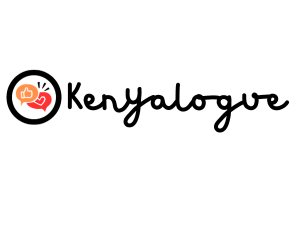In these hard economic times, many Kenyans find themselves defaulting on loan repayments.
Others have resorted to borrowing from multiple sources to pay their debts when and as they fall due.
That effectively locks the borrowers in a vicious cycle of debt, which is almost impossible to break.
The consequences of defaulting on loan repayment in Kenya vary depending on the loan agreement terms as well as the source of loans.
For instance, a default on a digital lender loan can land one’s name in the Credit Reference Bureau (CRB) for a period of not less than five years and not exceeding seven years.
The CRB listing bars an individual from accessing loans from other digital lenders as well as banks and Sacco’s.
Loans from mobile lenders face the highest risk of default since they’re usually short-term and unsecured.
Defaulting on a bank or Sacco loan comes with more serious consequences like auctioneers knocking at your door, loss of collateral or seizure of the asset financed by the institution.
More often than not, the asset is usually a car, business machinery, a parcel of land or a house.
Other consequences include lower credit rating and subsequent higher interest rates on future loans if the CRB clears the loan defaulter.
In the face of all these risks, however, a borrower is protected by a number of regulations and the laws of Kenya and has several ways to get reprieve in case they default on loan repayment.
Below is a detailed highlight of the rights of a loan defaulter in Kenya.

Right to Ample/Adaquate Notice
As per the Central Bank of Kenya Regulations (Digital Credit Providers) digital lenders must give loan defaulters 30-days notice in writing or electronic communication channels before they enlist the defaulters in the CRB.
According to Business Daily Africa, this regulatory directive was effected in September 2022 following widespread outcry about the aggressive tactics used by digital lenders to recover their money from loan defaulters.
Right To Renegotiate Terms Through A Proclamation Notice
This applies in cases where an auctioneer has presented a notice of attachment of property to a debtor.
With the document, a defaulter can access a lawyer of reasonable caliber to help with negotiation for favorable rights.
If the negotiations go well, the defaulter can escape the auctioneer’s hammer.
The Right To Have A Lender Auction Your Collateral To The Highest Bidder
The Lands Act 2012 says it is illegal for a lender to auction a loan defaulter’s assets at throw away prices.
Proper valuation of the property in question must be done by a professional valuator.
Any auction price that falls below 75% of the market value is not acceptable.
Failure to adhere to this criteria will amount to violation of the law by the lender.
In the event that an auctioneer sells the chattels or property at above-the-market prices, the excess amount is pocketed by the defaulter.
The Right To A Fair Court Hearing
If a defaulter feels aggrieved by either the lender or the auctioneer, they can get redress from a court of law.
Court injunctions and property repossession orders can come in handy when a defaulter’s rights have been violated by a lender or their agent.
Winning a court battle against a lender can be rewarding since handsome amounts are paid in terms of damages.
However, the chance of winning or losing is an absolute gamble.
Therefore, it’s advisable to take a court case as the last resort to any disputes between a loan defaulter and a lender.
In Closing
It is of great importance for borrowers to familiarize oneself with the laws that govern lending in Kenya.
That way, in the event of a default, it will be easy to ensure that unscrupulous lenders or auctioneers do not exploit you for their selfish gains.
Many Kenyans have found themselves in protracted court battles that they end up losing simply because they took loans without familiarizing themselves with the relevant laws and regulations.
Also, avoiding unnecessary borrowing and living within one’s means is a sure bet to escape loan defaults.
It’s wise to borrow for non-recurrent expenditure like housing projects or car purchase rather than borrowing for recurrent like rent, buying groceries or travelling.



